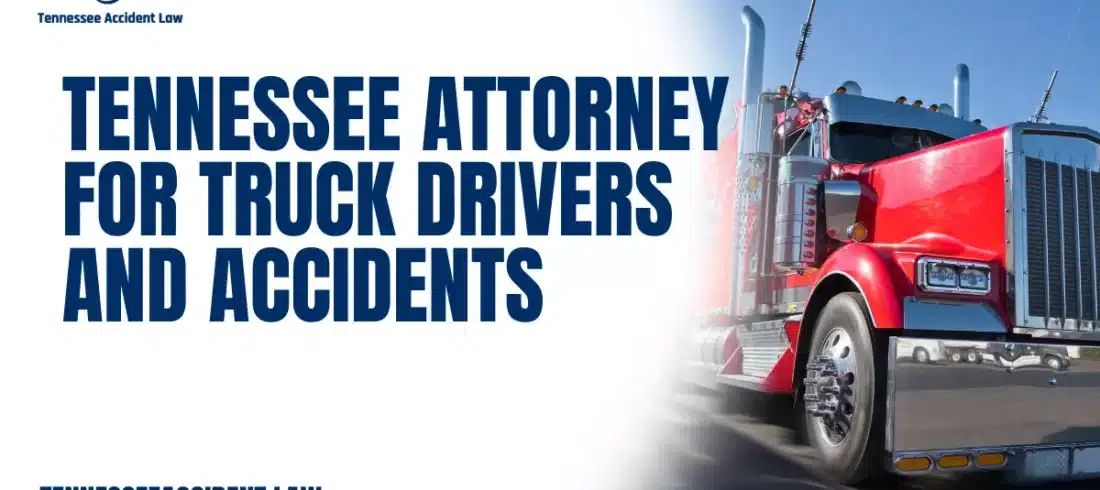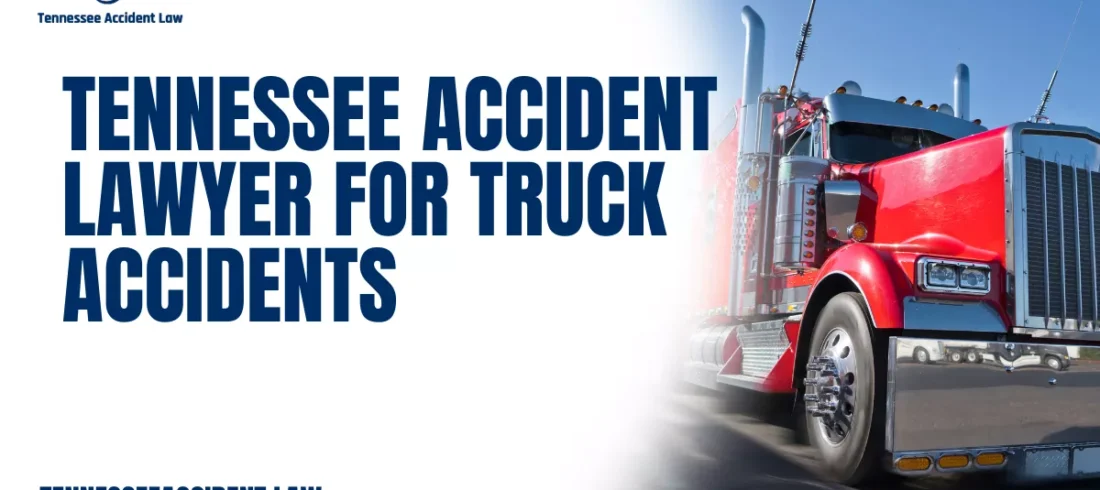How DUI Laws Impact Tennessee Truck Accident Cases
Truck accidents in Tennessee can be devastating, especially when drug and alcohol use in truck accidents is involved. The laws governing DUI (driving under the influence) play a critical role in determining fault, liability, and compensation in these cases. If you or a loved one have been affected by a truck accident involving drug or alcohol use, understanding the legal implications is essential. At Tennessee Accident Law, we specialize in holding negligent parties accountable and ensuring victims receive the compensation they deserve. Call us today at (615) 212-9866.
 –
–
Drug and Alcohol Use in Truck Accidents
Commercial truck drivers are held to higher safety standards than typical motorists due to the massive size and destructive potential of semi-trucks and large vehicles. Under federal and state laws, it is illegal for a commercial driver to operate a vehicle while under the influence of alcohol, drugs, or controlled substances.
- Alcohol Limits for Truck Drivers
While the legal blood alcohol concentration (BAC) limit for non-commercial drivers is 0.08%, commercial truck drivers face stricter limits. According to the Federal Motor Carrier Safety Administration (FMCSA) regulations, truck drivers are considered over the legal limit with a BAC of 0.04%. - Drug Testing Requirements
Trucking companies are required to conduct drug and alcohol testing under federal laws:- Pre-employment testing
- Random testing
- Post-accident testing
When a truck driver fails these tests, it can significantly impact liability and prove drug and alcohol use in truck accidents.
How Drug and Alcohol Use Contributes to Truck Accidents
Drug and alcohol impairment severely diminishes a driver’s ability to make sound decisions, react quickly, and control their vehicle. Impaired truck drivers pose a significant threat to everyone on the road. Here are some ways drug and alcohol use leads to truck accidents:
- Delayed Reaction Times: Impairment causes slowed reflexes, making it difficult to stop or swerve in time.
- Loss of Coordination: Alcohol or drugs can cause a lack of control over a large commercial vehicle.
- Poor Judgment: Impaired judgment leads to reckless decisions, such as speeding, running red lights, or unsafe lane changes.
In Tennessee, proving that drug or alcohol impairment caused a truck accident is a crucial part of securing compensation.
Tennessee DUI Laws and Their Impact on Truck Accident Claims
Tennessee law takes a firm stance against DUI, especially for commercial truck drivers. DUI charges against truck drivers can directly impact personal injury claims in the following ways:
1. Establishing Negligence
When drug and alcohol use in truck accidents is proven, the truck driver and their employer can be held liable. Violating DUI laws establishes negligence per se, meaning the driver’s actions are automatically considered negligent under the law.
2. Employer Liability
Under vicarious liability, trucking companies can be held responsible for their drivers’ actions. If a trucking company failed to conduct proper drug and alcohol screenings, retained a driver with a history of DUIs, or overlooked warning signs, they can share liability for the accident.
3. Punitive Damages
In Tennessee, punitive damages may be awarded in cases involving gross negligence or reckless behavior, such as driving under the influence. These damages are meant to punish the driver and deter others from similar misconduct.
4. Post-Accident Testing Requirements
After a truck accident, federal law requires immediate drug and alcohol testing if:
- The accident involves a fatality.
- A citation is issued and the crash causes bodily injury or significant property damage.
Results of these tests provide critical evidence in proving drug and alcohol use in truck accidents.
Proving Drug and Alcohol Use in Truck Accident Cases
Proving impairment in a truck accident case requires thorough investigation and legal expertise. At Tennessee Accident Law, we gather compelling evidence to support your claim, including:
- Police Reports: Document the accident scene, witness statements, and field sobriety tests.
- Drug and Alcohol Test Results: Confirm impairment immediately after the accident.
- Driver Logs: Check for violations of rest and work hour limits, which may contribute to unsafe driving.
- Trucking Company Records: Investigate whether the employer enforced drug and alcohol testing policies.
This evidence is vital in showing that drug and alcohol use in truck accidents directly caused the crash and your injuries.
Compensation for Victims of Truck Accidents Involving DUI
If you’ve been injured due to a truck driver’s impairment, you have the right to seek compensation for damages, including:
- Medical Expenses – Past, present, and future costs for treating injuries.
- Lost Wages – Compensation for income lost due to recovery time.
- Pain and Suffering – Physical and emotional distress caused by the accident.
- Property Damage – Costs to repair or replace your vehicle.
- Punitive Damages – Additional compensation if gross negligence is proven.
At Tennessee Accident Law, a Tennessee truck accident lawyer will fight to maximize your compensation, ensuring all losses—financial and personal—are covered.

Why Choose Tennessee Accident Law?
When facing the aftermath of a truck accident involving drug and alcohol use, choosing the right legal team makes all the difference. At Tennessee Accident Law, we have over 20 years of experience handling catastrophic truck accident cases. Our firm:
- Focuses exclusively on representing injury victims, never insurance companies.
- Has secured victories against large corporations and insurers.
- Understands the complexities of DUI laws and how they impact truck accident claims.
Our priority is helping you recover physically, emotionally, and financially.
Take the Next Step: Complete Your Free Case Evaluation Form
If you or a loved one have been injured in a truck accident involving drug and alcohol use, you don’t have to face this battle alone. Let Tennessee Accident Law fight for you.
Complete our free case evaluation form today to take the first step toward justice and compensation. Our team is here to guide you every step of the way, ensuring you get the support and results you deserve.
By understanding the role of DUI laws and drug and alcohol use in truck accidents, victims can navigate their cases with clarity and confidence. Let Tennessee’s premier personal injury firm, Tennessee Accident Law, be your advocate in holding negligent drivers and trucking companies accountable. Call us now at (615) 212-9866.
Sources:
- Federal Motor Carrier Safety Administration (FMCSA) – Drug & Alcohol Testing Regulations
The FMCSA outlines mandatory drug and alcohol testing for commercial drivers, including pre-employment, random, and post-accident testing requirements. These regulations aim to reduce impaired driving among truck drivers.
Visit the FMCSA Drug and Alcohol Testing Program - National Highway Traffic Safety Administration (NHTSA) – Impaired Driving Statistics
The NHTSA provides data and research on impaired driving, including how drug and alcohol use contributes to accidents involving large trucks and commercial vehicles.
Access NHTSA’s Impaired Driving Resources - Centers for Disease Control and Prevention (CDC) – Impaired Driving Facts
The CDC offers facts and statistics on the impact of alcohol and drug impairment on driving performance, including its role in accidents involving commercial drivers.
Explore CDC Impaired Driving Resources


